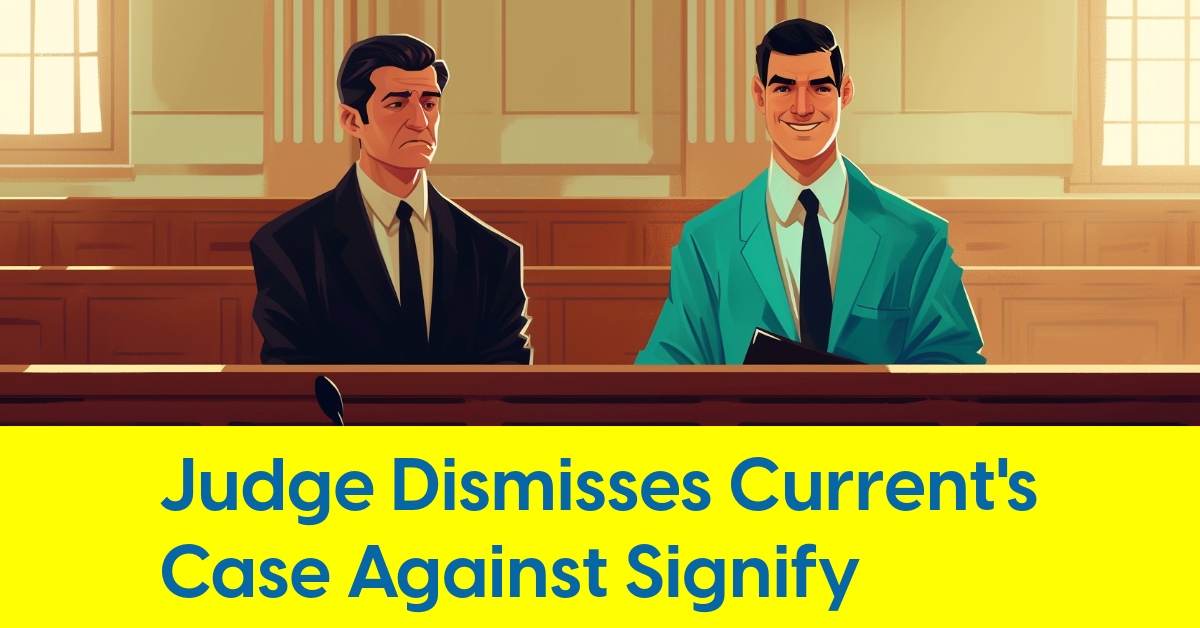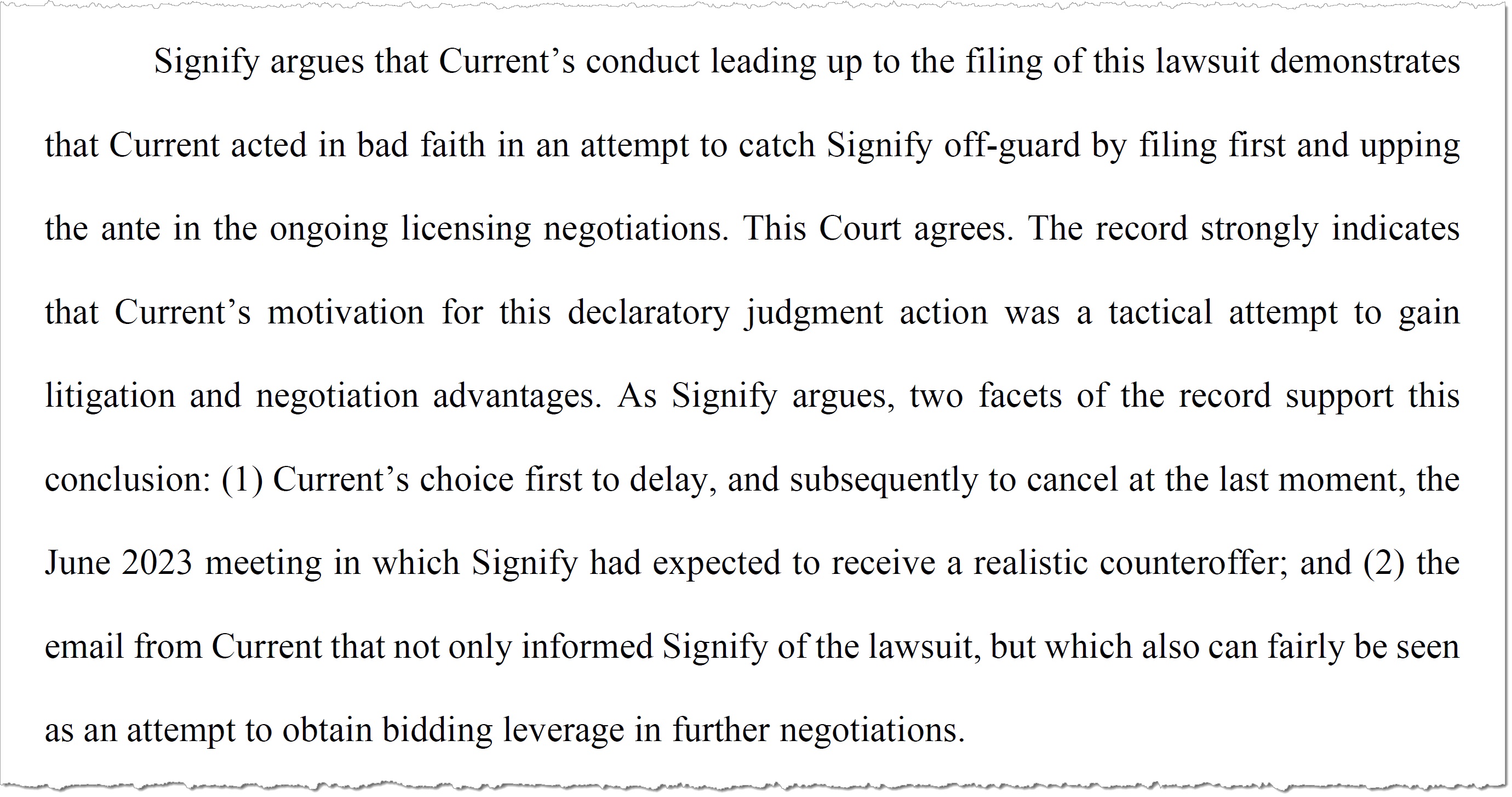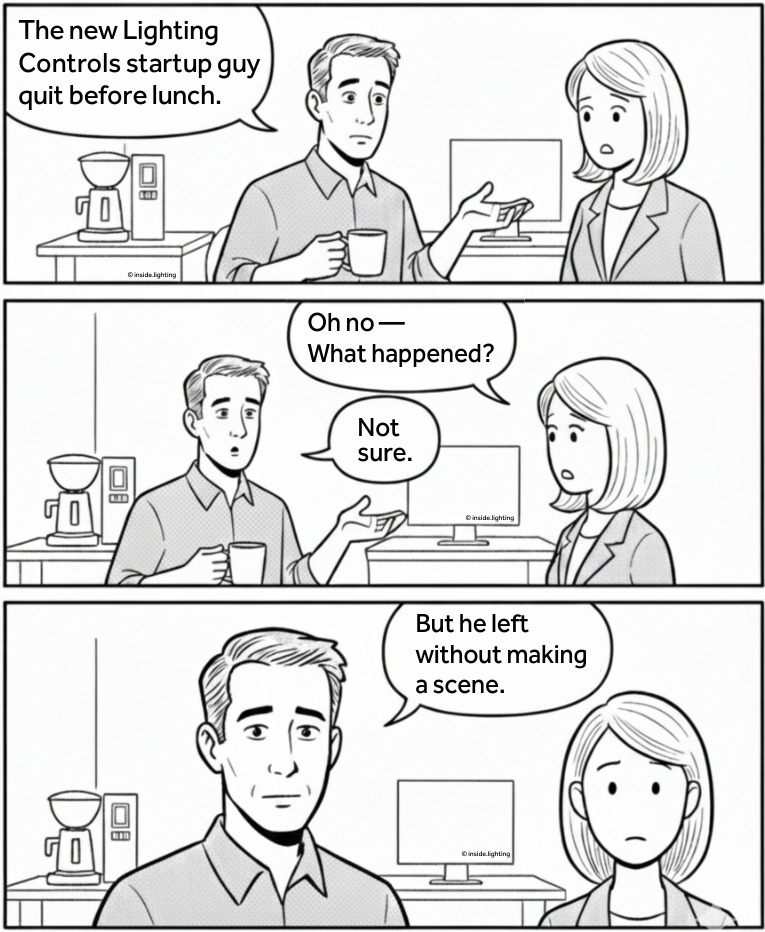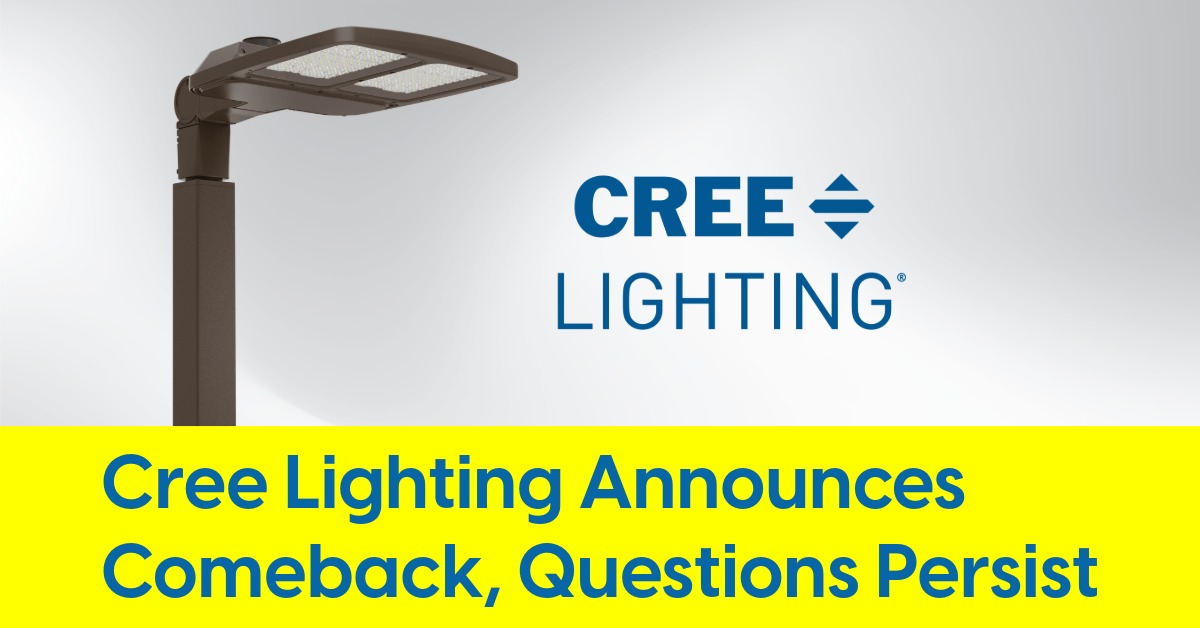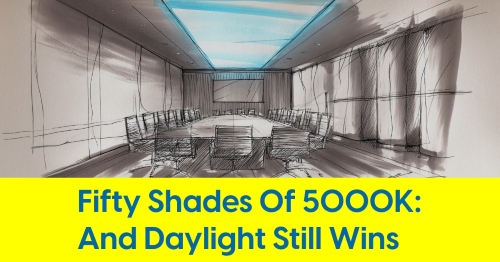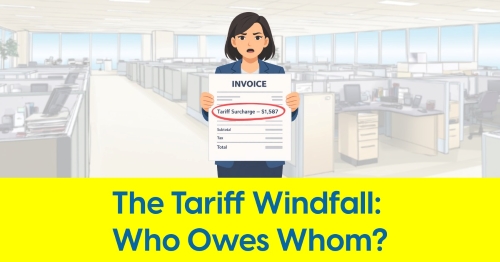February 7, 2024
Judge Dismisses Current's Case Against Signify
Court determines that Current acted in bad faith and filed lawsuit for negotiation advantages
A preemptive lawsuit filed by Current Lighting Solutions against Signify was dismissed by the US District Court for the District of Massachusetts on Tuesday. The June 2023 case was related to ongoing patent conflicts between the two major lighting manufacturers.
Presided over by Judge George A. O'Toole, Jr., Current sought declaratory judgments of non-infringement for eighteen Signify patents. Essentially, Current wanted the court to declare that its products did not infringe on numerous Signify patents, as Signify had alleged during licensing negotiations between the companies.
The dispute began in June 2018 when Signify accused Current of infringing upon its LED lighting patents, urging Current to join its LED patent licensing program, EnabLED. This accusation led to prolonged negotiations spanning five years, aimed at reaching a licensing agreement between the two companies.
Despite various attempts, including exchanges of licensing proposals and in-person meetings, the negotiations failed to yield a conclusive agreement. The situation escalated when Current, citing dissatisfaction with Signify's licensing offer and accusing Signify of creating an impasse, filed for a declaratory judgment in Massachusetts. In response, Signify filed three complaints against Current for patent infringement in the District of Delaware and with the International Trade Commission one month later.
Following the dismissal, Current's case against Signify is now concluded, but the company must now defend against patent infringement claims in Signify's three ongoing cases against it. In its three lawsuits, Signify alleges infringement of nine patents in total, with seven overlapping the claims made in this case. The District of Delaware had put on hold the two cases it oversees, awaiting the decision on the motion to dismiss in the Massachusetts case.
Court's rationale for dismissal
Judge O'Toole's decision to dismiss the case hinged on two main considerations. Firstly, the court opted not to exercise jurisdiction under the Declaratory Judgment Act, emphasizing that Current's lawsuit appeared to be a strategic move to gain an upper hand in the ongoing licensing negotiations rather than to resolve genuine legal uncertainty. The court noted Current's last-minute cancellation of a scheduled meeting and the subsequent filing of the lawsuit as indicative of bad faith.
Secondly, the court addressed the "first-to-file" rule, which typically favors the forum of the first-filed action. However, the court exercised its discretion, noting that the first-to-file rule need not apply rigidly, especially in cases where the first-filed action undermines the objectives of the Declaratory Judgment Act. The court found that Current's action was more about gaining negotiation leverage than clarifying legal rights, thus justifying a departure from the first-to-file rule.
Above: Judge O'Toole justifies dismissal ruling in court filing
Current’s legal strategy that didn’t pan out
By filing for a declaratory judgment, Current aimed to legally establish that their products did not infringe upon Signify's patents. This legal action could serve multiple strategic purposes:
Gain Legal Clarity: Through the declaratory judgment, Current sought to clear the air regarding the alleged patent infringements, potentially removing the legal uncertainties that were hanging over their operations due to Signify's infringement claims.
Weaken Signify’s Negotiation Leverage: By initiating legal action, Current might have aimed to pressure Signify into coming to the negotiation table with more favorable terms for a licensing agreement, hoping that the threat of a legal battle would make Signify more amenable to compromise.
Tactical Advantage: By filing first, Current might have hoped to gain a first filer advantage and possibly choose a court perceived as more favorable to their case, thus gaining a tactical advantage in any subsequent litigation.
Shift the Narrative: Filing for a declaratory judgment allowed Current to frame themselves as the proactive party seeking to resolve the dispute, possibly influencing public and industry perception.
However, Judge O’Toole saw this move as more of a strategic ploy within the context of negotiations rather than a genuine effort to resolve a dispute over patent infringement, leading to the dismissal of the case.
